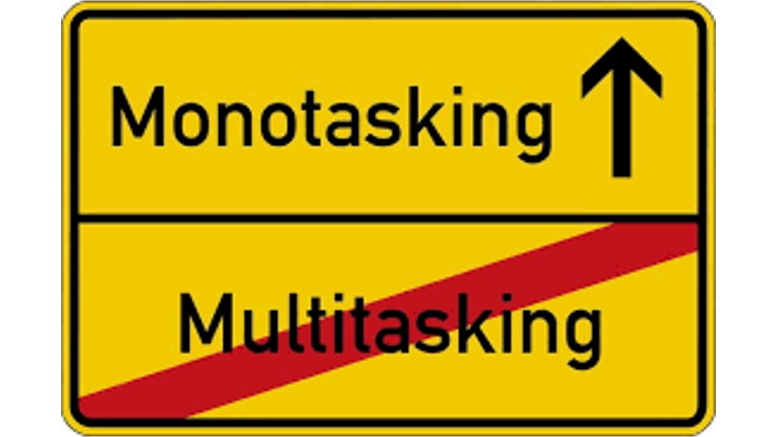My earlier post had illustrated the science and research that proves human beings are not wired to multitask. And that multitasking actually impacts productivity and overall well-being.
According to MIT neuroscientist Earl Miller, “Our brains are not wired to multitask well… when people think they’re multitasking, they’re actually just switching from one task to another very rapidly. And every time they do, there’s a cognitive cost.”
Humans are however so conditioned to multitask that when they do not, they may end up feeling small and inadequate. After all, our work defines and shapes us.
Therefore, learning to let go of multitasking is a big challenge.
Learning to monotask
Lydia Cho, a psychologist and neuropsychologist with Harvard-affiliated McLean Hospital says the only way to break away from multitasking is to monotask (doing one task at a time). “This approach lowers the burden on working memory, reduces your vulnerability to distraction, and helps you complete the task more efficiently and quickly,” says Cho.
Monotasking is found to protect the brain against Alzheimer. It is also less stressful and gives us the ability to complete tasks faster is more. It allows a person to be in the flow, thereby improving overall work performance.
There are several ways in which monotasking can become as part of your schedule.
- Digital detox
Take a break from digital devices like smartphones, social media platforms, laptop, etc. A break from constant connectivity helps the brain to unwind and recharge itself. Try switching off your phone when not using it.
- Focus on real time
We are so attached to the virtual world that we have forgotten what it means to go out and meet people in real time. Focus on real-world commitments, and regain a sense of balance.
- Put out that DND sign
When working on a task which you want to complete and not be distracted from, make it clear to others that you do not want to be disturbed. This way, you are focused on doing just one thing at a time.
- Prioritise only two or three things in a day
Stick to completing two or three tasks, giving them undivided attention. Ensure your calendar has only those priority tasks that need to be completed.
- Say ‘NO’
Put your foot down and learn to say no to more tasks coming your way in the day. You need to break that vicious cycle of taking on more work before completing what you have already started.
- Take a break
Schedule breaks between two tasks. This gives the brain a much needed rest. Many swear by the Pomodoro technique. This is a time management method in which one does focused work during 25-minute intervals — known as Pomodoro — and take a five-minute break. “The back-and-forth between work and rest helps establish a rhythm, where your brain knows when to work and when to rest,” says Cho.
- Manage stress
Identify your stressors and work towards managing those situations. Even a few minutes exercise or walk can support the brain to monotask.
- Practice mindfulness
Focus on the present and what is to be done in the moment. You can practice this either through daily meditation, or setting aside time daily to read. Even a 10-minute breathing exercise can help you stay in the moment.
- Sleep well
Do not neglect your daily sleep. Our brains need to relax and rejuvenate. Sleep is the best way for it to be refreshed.
- Delegate
Effective managers are not those who can do everything. Effective managers are those who are able to delegate tasks to their empowered team. Delegation also frees up time for you to focus on something else.
Just 2.5% of the people are able to multitask effectively. Majority of us cannot. The more you multitask, the less you are able to achieve.
So, let go of multitasking and focus on doing one thing at a time.
The views and opinions published here belong to the author and do not necessarily reflect the views and opinions of the publisher.



Be the first to comment on "Let us celebrate monotasking"